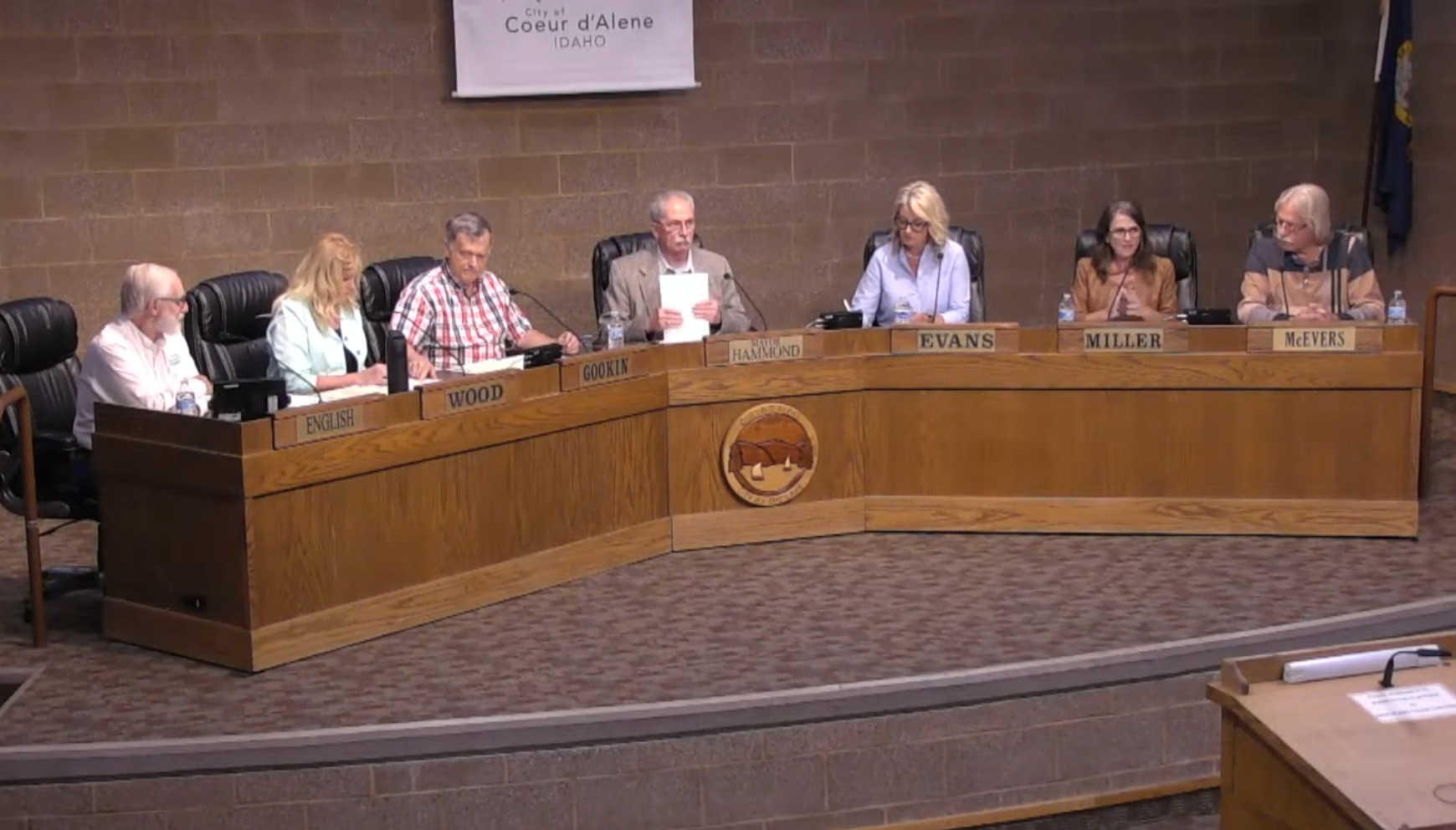COEUR d’ALENE, Idaho – The Coeur d’Alene City Council voted unanimously July 2 to pass a bill charging certain criminal offenses with an additional misdemeanor based on the offender’s intent. The new law “will enable the City to prosecute racially motivated crimes, leading to separate charges and enhanced penalties in appropriate cases.”
The bill added chapter 9.23: Hate Crimes to the Coeur d’Alene Municipal Code, which defined such crimes as being “motivated by a person’s actual or perceived race, color, creed, religion, ancestry, gender, sexual orientation, gender identity, physical or mental disability, or national origin.”
According to the meeting agenda, the bill was proposed in response to recent allegations of racial harassment by the University of Utah’s Women’s Basketball team and the Coeur d’Alene Tribe. Both incidents did not involve prosecution as neither qualified as criminal charges under Idaho law.
Under the new ordinance, hate crimes will include Intimidation, Malicious Injury to Property, Harassment, Assault and Battery, Public Nuisance, Disorderly Conduct, Threat, and Conspiracy when motivated by the victim’s actual or perceived aforementioned traits. Penalties could include fines, community service, ineligibility for any City licenses, permits, or activities and “participation in an educational program,” in addition to a misdemeanor charge.
Randy Adams, City Attorney for Coeur d’Alene, presented the bill before the Council on behalf of the Cd’A legal department. Adams cited the US Department of Justice in saying that hate crime laws are “not the prohibition of expressive conduct or speech and do not violate the first amendment.”
Adams specified that misdemeanors such as Harassment or Assault will not receive “enhanced” penalties under this ordinance, but instead a separate offense will be charged. This language would seem at odds with the bill’s statement that it would lead “to separate charges and enhanced penalties in appropriate cases.”
“In these situations the person has not only committed one crime – the underlying crime,” said Adams. “But has committed the second crime, which is choosing a victim based on these characteristics.”
Councilmember Gookin expressed concern over the bill’s potential to violate the first amendment by charging people on their intent to intimidate. Adams stated that intent is a “recognized element of many crimes” and regularly proven in court cases.
“We do have to hold up people’s rights,” Gookin said. “That’s what our government is founded upon, is protecting people’s rights, especially from the government. Even though language may be offensive to us and we may think that ‘that’s not us’ as many people said here, people still have a right to be a racist.”
“It’s not criminalizing the thought or expression,” Adams said. “It’s criminalizing the intent behind the violation of another ordinance.”
Councilmember Woody McEvers’ asked if this ordinance would have made any difference in the recent racial incidents in Coeur d’Alene had it been in effect last year. Adams conceded that because “there was no threat of physical harm or injury with the expectation that that would actually occur…this would not have changed that result in either case.”
“There still has to be a threat of harm, violence, injury that is reasonable to expect would occur before we can punish it,” Adams said. “Otherwise you are punishing speech.”
Councilmember Dan English expressed his enthusiasm for the bill’s penalty that restricts offenders from obtaining City license and permit or joining a city activity. English said he would “highly approve of” the penalty which would “hit them right in the pocketbook.”
“People have a right to do what they’re going to do [and] make kinds of choices,” said English. “But you’ve always got to be ready to pay the price. I think that’s great.”
Public comment lasted for an hour on the front end of the regularly scheduled meeting. Commenters included Tony Stewart of the Kootenai County Task Force on Human Relations, Chief J. Allan of the Coeur d’Alene Tribe, and Ralph K. Ginorio of the Kootenai Journal. Commenters predominantly supported the bill, however a few expressed their opposition.
Alan Golub, a 33-year resident of North Idaho, expressed his affinity for Natives as a Jewish man whose family also has endured hate and displacement. However, his belief that laws “can’t make people love each other” governed his disapproval of the bill.
“Are there racists and bigots in North Idaho,” Golub asked, rhetorically. “I’m sure there are, but I could find more in a 4-mile radius from my home in Woodland Hills, California.”
The ruling comes on the heels of the Coeur d’Alene Regional Chamber’s July 1 announcement to repeal their controversial rule banning religious symbols from the annual Fourth of July American Heroes Parade. Linda Coppess, President of the Regional Chamber, made a statement via Facebook that “the executive board of directors has made an exception for the religious symbols.”
The rule, introduced for the first time in 2024, received criticism from community members who questioned the rationale behind removing religious displays from the celebration, and persisted that their First Amendment rights prohibited such a rule.







